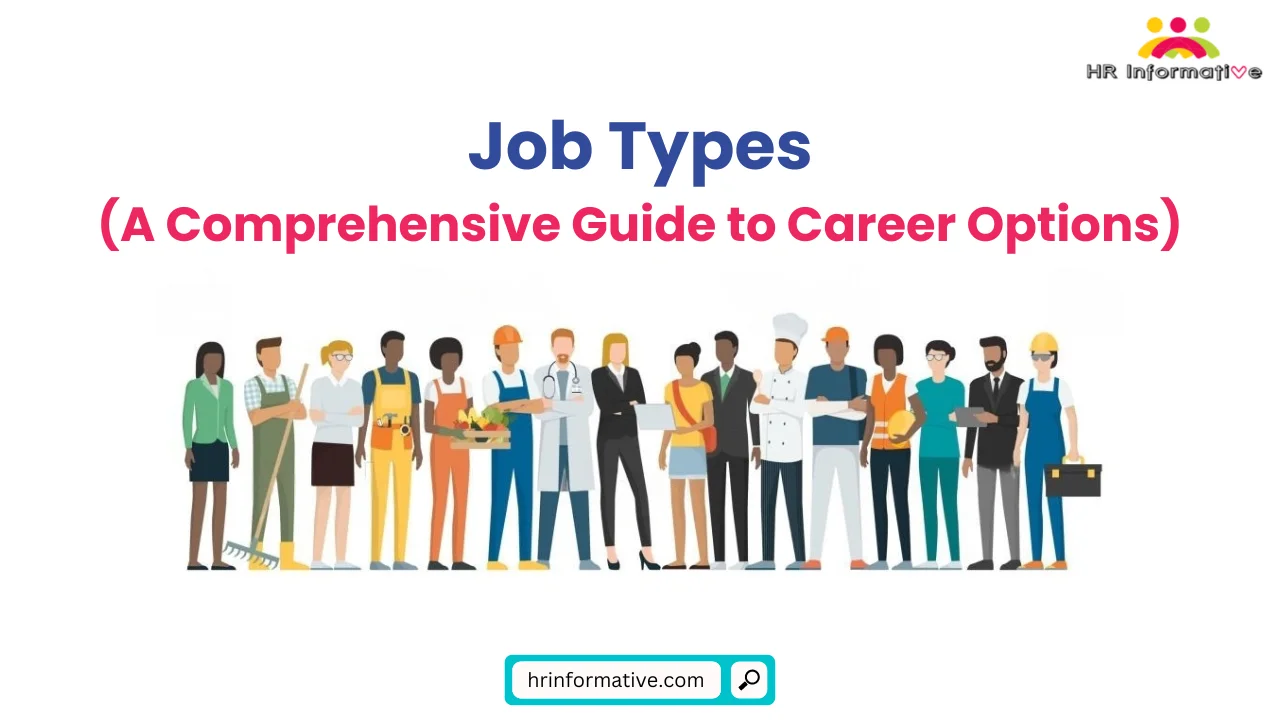In today’s diverse and rapidly evolving job market, there are countless career paths to choose from. Whether you’re a fresh graduate exploring your options or a seasoned professional considering a career change, understanding different job types is crucial. This comprehensive guide aims to provide an overview of various job types, highlighting their key characteristics, requirements, and potential opportunities. From traditional full-time employment to freelancing, remote work, and entrepreneurship, we will explore the pros and cons of each job type, helping you make informed decisions about your career path.
Full-Time Employment
Full-time employment is the conventional job type where an individual works for a single employer on a regular basis. It typically involves a fixed number of working hours per week, often 40 hours, and offers stability, benefits, and a predictable income. Full-time employees often have access to health insurance, retirement plans, paid time off, and other perks provided by their employers. This job type is common across various industries, including finance, healthcare, technology, and manufacturing. While full-time employment provides stability, it may also limit flexibility and require adherence to a specific schedule and workplace.
Part-Time Employment
Part-time employment refers to working fewer hours compared to full-time employment. Part-time jobs offer flexibility, allowing individuals to balance work with other commitments or interests. Students, parents, and individuals seeking additional income often opt for part-time employment. Part-time jobs can be found in retail, hospitality, education, and various other sectors. While part-time jobs may not offer the same benefits as full-time positions, they can provide valuable work experience and serve as a stepping stone to higher-level roles.
Freelancing
Freelancing involves working on a project or contract basis for multiple clients, often as self-employed individuals. Freelancers have the flexibility to choose their projects, clients, and working hours. This job type is prevalent in creative fields such as writing, graphic design, web development, and consulting. Freelancers are responsible for finding their clients, negotiating contracts, and managing their own finances and taxes. While freelancing offers autonomy and the potential for higher earnings, it requires self-discipline, self-promotion, and a strong entrepreneurial mindset.
Remote Work
Remote work has gained significant popularity in recent years, allowing individuals to perform their job duties from a location of their choice, often outside of a traditional office setting. Remote work can be either full-time or part-time and offers flexibility, reduced commuting time, and the possibility of a better work-life balance. Technological advancements and improved connectivity have enabled remote collaboration and communication. Remote work is particularly common in the tech industry, digital marketing, customer support, and writing. However, remote work may require self-motivation, strong communication skills, and the ability to manage time effectively.
Entrepreneurship
Entrepreneurship involves starting and managing one’s own business or venture. Entrepreneurs are responsible for developing innovative ideas, securing funding, and building a sustainable business model. This job type offers independence, unlimited earning potential, and the opportunity to create something meaningful. However, entrepreneurship also entails higher risks, long working hours, and uncertainty. Entrepreneurs need to possess strong leadership skills, creativity, resilience, and a willingness to adapt to changing market conditions.
Gig Economy
The gig economy refers to temporary or short-term jobs, often facilitated through digital platforms. Gig workers take on individual tasks or projects on a flexible basis. This job type includes various roles such as ride-sharing drivers, delivery couriers, and freelance workers in fields like content writing, graphic design, and IT. The gig economy provides flexibility, the ability to choose projects based on skills and availability, and the opportunity to diversify income streams. However, gig workers often lack job security, employment benefits and may face challenges in maintaining a consistent income.
Internships
Internships are temporary positions that provide practical work experience for students or individuals looking to gain industry-specific skills. Internships can be paid or unpaid and can vary in duration from a few weeks to several months. They offer an opportunity to apply theoretical knowledge in a real-world setting, build professional networks, and enhance employability. Internships are prevalent in fields such as finance, marketing, engineering, and journalism. While internships may not offer the same benefits as full-time employment, they can serve as a valuable stepping stone to future career opportunities.
Contract Work
Contract work involves working on a fixed-term basis, typically for a specific project or assignment. Contractors are hired by companies to provide specialized skills or expertise. Contract work offers flexibility and the potential for higher compensation, as contractors are often paid higher rates compared to full-time employees. This job type is common in sectors like IT, construction, consulting, and event planning. However, contract workers may not have the same job security or benefits as full-time employees.
Nonprofit and Volunteering
Working for a nonprofit organization or engaging in volunteer work allows individuals to contribute to a cause they are passionate about. Nonprofit jobs are mission-driven and focus on addressing social, environmental, or community needs. These jobs can be part-time or full-time and span various sectors such as healthcare, education, conservation, and advocacy. While nonprofit jobs may offer a sense of fulfillment and the opportunity to make a positive impact, they often come with lower salaries and fewer benefits compared to for-profit sectors.
Conclusion
In today’s dynamic job market, job types have expanded beyond traditional full-time employment. Each job type offers unique advantages and considerations, and the choice depends on individual preferences, lifestyle, and career goals. Full-time employment provides stability and benefits but may limit flexibility. Part-time employment offers work-life balance but may have limited benefits. Freelancing and remote work provide autonomy and flexibility but require self-promotion and entrepreneurial skills. Entrepreneurship offers independence and unlimited earning potential but entails higher risks. The gig economy offers flexibility but lacks job security. Internships and contract work provide valuable experience but may have limited benefits. Nonprofit and volunteering work offers a sense of fulfillment but may come with lower salaries.
When exploring job types, it is important to consider personal strengths, interests, and long-term career aspirations. Ultimately, finding a job that aligns with one’s values and provides growth opportunities is key to a fulfilling and successful career.
Other Read :




